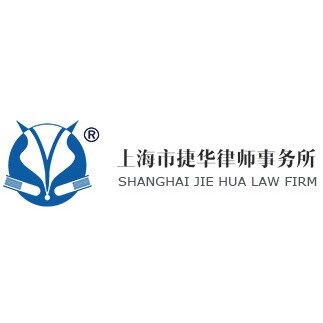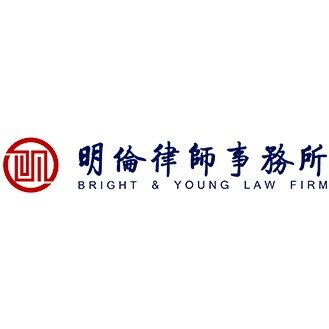Best Adoption Lawyers in China
Share your needs with us, get contacted by law firms.
Free. Takes 2 min.
Free Guide to Hiring a Family Lawyer
Or refine your search by selecting a city:
List of the best lawyers in China
About Adoption Law in China
Adoption in China is governed by the "Adoption Law of the People's Republic of China," which was first enacted in 1992 and has seen several amendments since. The law aims to protect the rights of orphans and abandoned children, while also regulating the procedures involved in adoption. Adoption can be processed domestically or through international channels, and considerable emphasis is placed on the best interests of the child. The law sets eligibility criteria for adoptive parents and delineates the rights and responsibilities of all parties involved in the adoption process.
Why You May Need a Lawyer
There are several situations in which individuals or families might seek legal assistance when pursuing adoption in China:
- Understanding Legal Requirements: Navigating the complex requirements and documentation needed for adopting a child.
- Resolving Legal Disputes: Handling disputes arising from adoption arrangements or biological parent claims.
- International Adoption Process: Managing cross-border legal considerations and compliance with international treaties like the Hague Adoption Convention.
- Non-Compliance Issues: Addressing issues related to non-compliance with adoption agreements.
- Privacy Concerns: Legal advice on safeguarding the privacy of adoptive and biological families.
Local Laws Overview
Adoption laws in China encompass several key aspects:
- Eligibility: Prospective adoptive parents must be at least 30 years old. Single individuals are eligible under certain conditions, though priority is often given to married couples.
- Consent: Biological parents must give consent unless the child is an orphan. Furthermore, the consent of the child is necessary if they are 10 years old or older.
- Registration: Adoption must be registered with civil affairs departments to be legally recognized.
- Intercountry Adoption: Foreign citizens must work through accredited agencies, and the Chinese government only allows adoption from certain countries that have agreements with China.
- Revocation and Annulment: Conditions are specified under which an adoption can be annulled or revoked by court order.
Frequently Asked Questions
1. Who can adopt in China?
Chinese law allows individuals or couples aged thirty or older to adopt. Single individuals can adopt with certain age and gender restrictions, though preferences are given to married couples.
2. Can non-Chinese citizens adopt from China?
Yes, non-Chinese citizens can adopt from China via intercountry adoption agencies that are accredited and have an agreement with China.
3. What children are eligible for adoption?
Orphans, abandoned children, and children whose biological parents are unable to raise them due to exceptional circumstances are eligible for adoption.
4. Is the consent of biological parents necessary?
Yes, except in cases where the child is an orphan. Additionally, children aged 10 and above must give their own consent to be adopted.
5. How is the adoption process initiated?
The process begins with submitting an application to the local Civil Affairs Bureau or an accredited agency, following which documentation and home studies are conducted.
6. How long does the adoption process take?
The duration varies, but it can take anywhere from several months to a few years to complete the process from application to finalization.
7. Are there any fees involved in adoption?
Yes, there are various administrative and legal fees associated with adoption, including application fees to agencies and processing fees.
8. Can an adoption be annulled?
Yes, under certain circumstances, such as fraud or coercion, an adoption can be annulled through a legal process.
9. What are post-adoption requirements?
Adoptive parents must comply with post-placement follow-ups, which may include home visits and status reports depending on local and international regulations.
10. Does adopting a child from China grant citizenship?
The child does not automatically gain citizenship of the adoptive parents' country. Legal processes are required for citizenship based on the laws of the adoptive parents' country.
Additional Resources
Consider reaching out to the following resources for additional information and assistance:
- The Chinese Center for Children's Welfare and Adoption (CCCWA)
- Ministry of Civil Affairs of the People's Republic of China
- Accredited International Adoption Agencies
- Embassies and Consulates for country-specific guidance
Next Steps
If you seek legal assistance regarding adoption in China, consider the following steps:
- Research and Select a Law Firm: Look for law firms specializing in family law and adoption, ideally with experience in international and local Chinese law.
- Consultation: Schedule a consultation to discuss your situation and evaluate your options.
- Documentation: Gather all necessary documents and seek legal advice on completing any additional paperwork.
- Contact Relevant Authorities: Reach out to adoption authorities and accredited agencies for guidance on legal compliance and application procedures.
Lawzana helps you find the best lawyers and law firms in China through a curated and pre-screened list of qualified legal professionals. Our platform offers rankings and detailed profiles of attorneys and law firms, allowing you to compare based on practice areas, including Adoption, experience, and client feedback.
Each profile includes a description of the firm's areas of practice, client reviews, team members and partners, year of establishment, spoken languages, office locations, contact information, social media presence, and any published articles or resources. Most firms on our platform speak English and are experienced in both local and international legal matters.
Get a quote from top-rated law firms in China — quickly, securely, and without unnecessary hassle.
Disclaimer:
The information provided on this page is for general informational purposes only and does not constitute legal advice. While we strive to ensure the accuracy and relevance of the content, legal information may change over time, and interpretations of the law can vary. You should always consult with a qualified legal professional for advice specific to your situation.
We disclaim all liability for actions taken or not taken based on the content of this page. If you believe any information is incorrect or outdated, please contact us, and we will review and update it where appropriate.
Browse adoption law firms by city in China
Refine your search by selecting a city.















